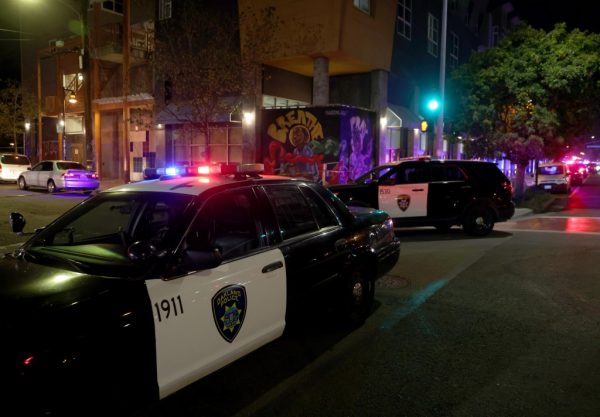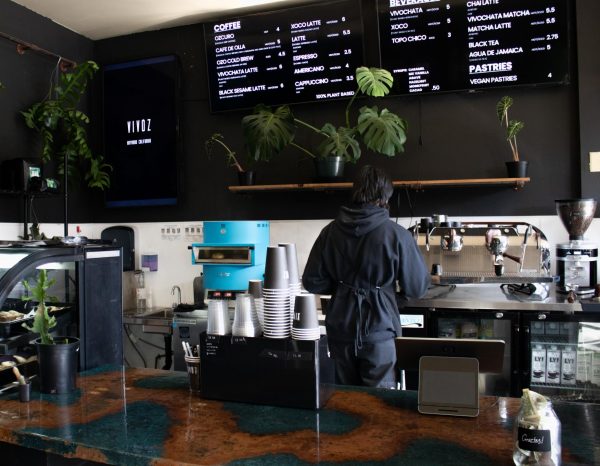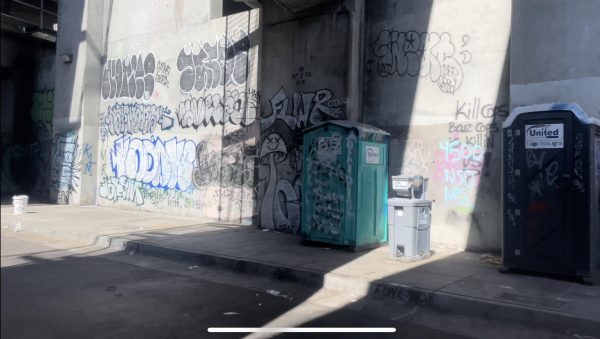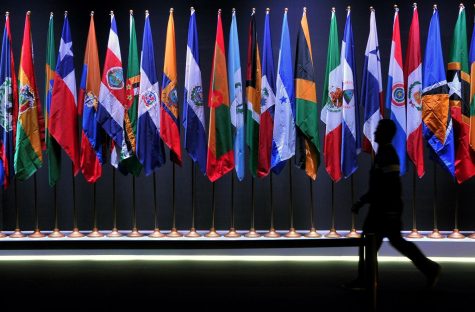Undocumented Immigrants treated unfairly more than ever under the Trump administration
Esteban Leon, Contributor
June 18, 2020
COVID-19 worldwide pandemic has caused a bigger disparity between unauthorized citizens and citizens inside the country.
The coronavirus pandemic has provided visible evidence of how disproportionately the undocumented community disadvantaged within the United States.
The spread of the COVID-19 virus has caused a major outbreak throughout the world; the United States has had unprecedented numbers of people testing positive with over a million people testing positive and over 60,000 deaths. The numbers keep rising as the days go on.
With aid being provided to the public, not everyone within the country’s borders is being treated equally.
Undocumented immigrants have always been discriminated against and been treated unfairly, but with the worldwide pandemic currently happening the disproportion of how they are treated compared to the rest of Americans hasn’t shown as much as it has now.
Before the outbreak of the virus, President Donald Trump and his administration implemented some of the strictest immigration restrictions the United States has ever seen.
For example, In 2017, Trump authorized a permanent travel ban from countries such as Yemen, Iran, North Korea, Syria, and Somalia. Asylum seekers from the U.S/Mexican border have been restricted and the government has limited those who qualify.
The zero-tolerance rule implemented in 2018, where if you illegally cross the border, authorities are willing to separate you and your children no matter the circumstances.
Trump has been widely known for his vulgar opinions towards specific groups of people inside and outside our country.
“It’s very easy for him to do so much talking, but he has never been in the shoes of an immigrant. He grew up from a wealthy family, compared to a family that came from nothing. His comments are very ignorant. He will never be able to understand what the people of color go through.”
Current California State University, East Bay student and daughter of immigrants, Alondra Castro expresses her opinion on President Trump.
His statements on immigration in this country might be the most offensive towards specifically Mexicans and those who immigrated to the country.
Under Trump’s presidency, millions of people have been living in fear because of his agenda to deport all undocumented immigrants even though many have made a living here and have been in the country for years. Some who arrived as children have no connections to the country they would be deported to.
According to the Migration Policy Institute, roughly 11.3 million unauthorized immigrants are living in the United States.
Many of them have spent years working hard labor jobs in agriculture, service industries, and other sectors, and many have even raised their families here.
There are thousands of students in our educational college systems throughout the country that have parents who are undocumented or even themselves are.
It is easy to feel helpless and scared because of the Trump administration.
Belen Menjivar a CSUEB graduate and current program specialist with Gaining Access N’ Academic Success, or GANAS for short, works closely with Latino students. Many have come to her office to discuss their mental distress over the possibility of being deported or having family members deported.
“We’ve had students that we’re in here, crying and saying, ‘what am I doing here? Do I keep going to school? Do I quit? Do I leave? Do I go back?’,” Menjivar said in an interview.
“We’ve had students that talked about going back to Mexico, even though they haven’t been there in years that have come in and said, ‘Maybe I’ll just go back to my homeland and start over. And at least now I speak English and I can get a tourist job.’ There have been those conversations where you have to remind students ‘This is not the end. We’ve gotten this far. Let’s see what’s next.”
In response to the COVID-19 outbreak, the Trump administration has restricted a travel ban from various foreign nations and closed the northern and southern borders to nonessential travel. This action has affected asylum seekers and other migrants who are forced back to the Mexico borders.
On March 27, 2020, The U.S. Senate signed a historic unanimous vote of 96-0 $2.2 trillion bills to help aid the economy and give one-time payments to every citizen for financial support. An estimated $560 billion will go towards U.S. citizens; every American over the age of 18 who independently supports themselves will receive a total amount of $1,200.
However, unauthorized immigrants aren’t granted the stimulus check from the federal government that would benefit the financial difficulties many people are going through.
With the tragic collapse of the U.S. economy, it has created greater struggles for many undocumented workers who are forced to work at industries that have laid off many of their employees and industries that are a current health risk due to the coronavirus.
Undocumented immigrants can’t rely on a fallback if they lose their jobs or even if they get sick during this pandemic. It is difficult for them to receive any medical attention due to their status and aren’t able to receive financial support from the government.
The crisis is also immensely affecting those who are being held in detention centers.
According to the American Immigration Council, noncitizens can be detained by one or more government agencies before or during their immigration proceedings. The most common government agencies that detain immigrants are U.S. Customs and Border Protection and Immigration and Customs Enforcement.
Other agencies that may detain non-citizens are the Office of Refugee Resettlement and U.S. Marshals Service.
During the 2019 fiscal year, Border Patrol arrested 859,501 people entering the border and an additional 288,523 were deemed inadmissible by the Office of Field Operations, who decides whether people have proper immigration status to enter the country.
ICE, the most controversial immigration detaining agency, detains noncitizens that are already in the country and can also receive transfers from CBP. 43,826 unauthorized citizens were detained in over 100 facilities during the 2019 fiscal year.
Those who are noncitizens and have been living in the country for years and paying taxes are too scared to receive any help due to the fear of being detained by ICE.
Roughly six million immigrant workers are currently working during the pandemic and are deemed to be essential workers. Another average of six million has been hit with layoffs due to the closure of businesses such as restaurants, hotels, and cleaning services.
According to the Pew Research Center, an estimated 7.6 million unauthorized workers make up roughly 4.6% of the U.S. labor force as of 2017.
Since the spread of the virus, an estimated 22 million Americans have filed for unemployment and have left many undocumented immigrants with almost no backup plan due to their status.
“Today, it is people of color who are working in the fields or grocery stores, restaurants to keep the country alive with food to eat,” said Castro.
California Governor, Gavin Newsom, announced the state will assist undocumented immigrants in relief checks with a $125 million disaster relief fund.
This one-time payment will provide $500 of aid per adult and a cap of $1,000 per household in the state.
In a press conference, Newsom stated that 10% of California’s workforce is undocumented and that although they paid over $2.5 billion in local and state taxes last year they don’t benefit from any financial assistance from the government.
An estimated 150,000 undocumented immigrants will benefit from the relief fund, although it doesn’t include even half of the number of total noncitizens in the state it will help some.
As a California native, Castro is pleased with the actions of Newsom, “I think that it’s great that [Governor Newsom] is recognizing that undocumented immigrants need help and aid. And I hope that it helps those communities that are affected.”
Although millions of Americans are affected by this health and financial crisis, unauthorized citizens are just as affected. At times like this, it is important to unite as one species, the human species.















